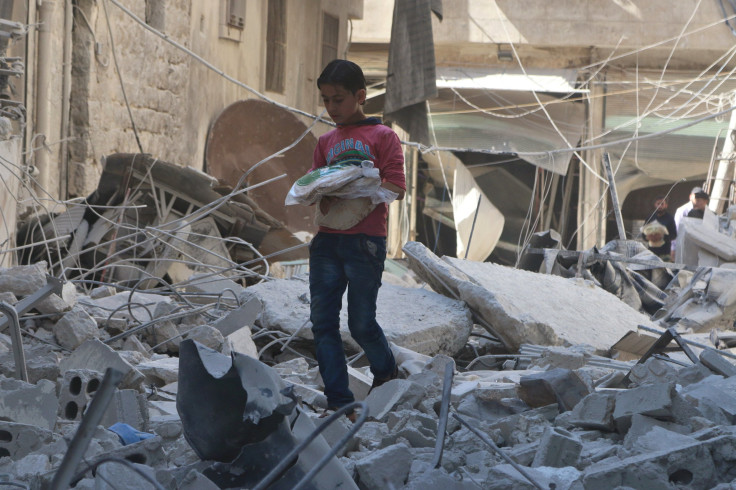Syria Conflict: Chief Opposition Negotiator Mohammed Alloush Resigns, Further Imperiling Peace Process

Mohammed Alloush, the chief peace negotiator of the main Syrian opposition group, announced his resignation Sunday over the failure of the United Nations-backed peace talks in Geneva. Alloush’s resignation further muddles prospects of a negotiated settlement to the protracted conflict that has already killed over 300,000 people.
“The peace talks failed to stop the bloodshed of our people, failed to secure the release of thousands of detainees or to push Syria towards a political transition without [Bashar] al-Assad and his criminal gang,” Alloush, who represented the Jaish al-Islam faction in the umbrella group named High Negotiations Committee (HNC), told Al Jazeera. “The international community needs to put serious pressure on Russia and Assad to stop the killing of our people.”
The Syrian opposition had suspended its formal participation in the U.N.-brokered peace talks in April, citing repeated ceasefire violations by pro-Assad forces.
“The three rounds of talks were unsuccessful because of the stubbornness of the regime and its continued bombardments and aggressions against the Syrian people,” Alloush said.
Repeated attempts to forge a lasting peace deal between various Syrian factions have failed to overcome a key hurdle — the political fate of Assad. A nationwide ceasefire in Syria, brokered by the U.S. and Russia in February, has all but collapsed even as the U.S. and rebel groups backed by it accuse Assad — who has the unflinching support of Russia — of repeatedly breaching the truce by targeting civilians in rebel-held areas. While the U.S. and the HNC have called for Assad’s immediate removal, Russia and Iran have balked at the prospect, stating that doing so would create a power vacuum that may plunge the war-torn country into further chaos.
As a result of the deadlock, both the U.S.- and Russia-led talks in Vienna and the U.N.-brokered talks between the Syrian regime and the opposition groups have struggled to get off the ground. Last week, Staffan de Mistura, the U.N. special envoy for Syria, said he was still trying to determine the “appropriate time” to reconvene the peace process.
“Mr. de Mistura reiterated the need to see progress on the ground — particularly in reference to the cessation of hostilities and humanitarian access. He briefed on his intention to start the next round of Talks as soon as feasible but certainly not within the next two/three weeks,” according to a statement from the envoy’s office.
© Copyright IBTimes 2025. All rights reserved.






















